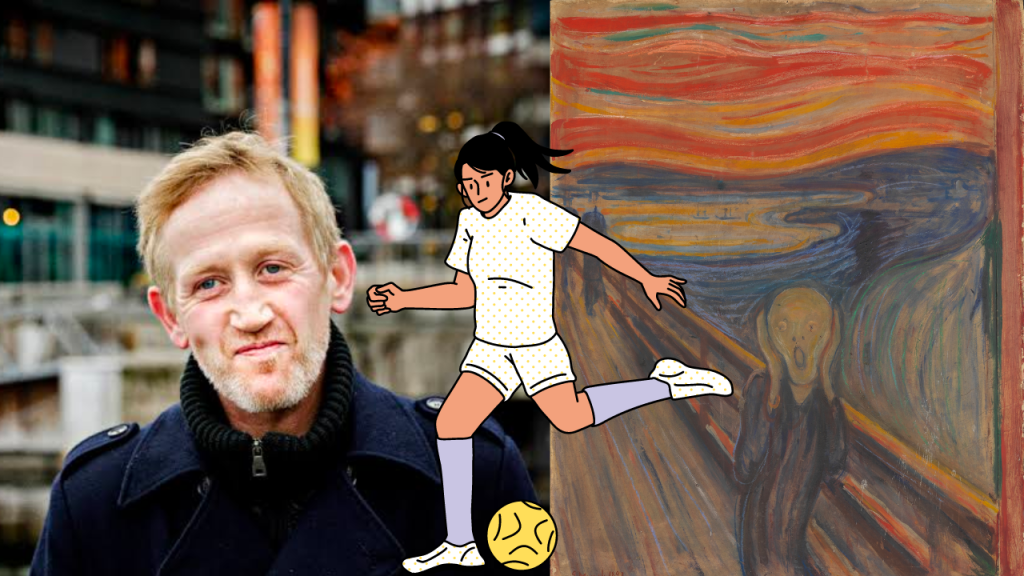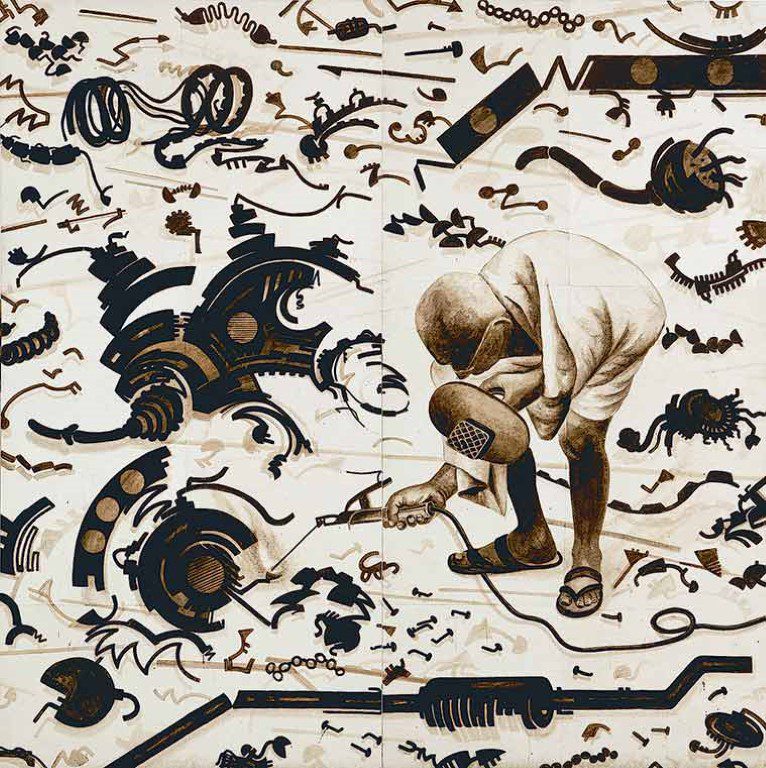In 1985, at just 18 years old, Pal Enger marked his debut in Norway’s Eliteserien, the country’s premier football league, playing for Valerenga. Little did the world know that his love for crime and a twisted sense of history would lead him down a path of audacious heists and eventual redemption.
A Childhood Obsessed with Crime and Art
Growing up in Oslo’s Tveita neighborhood, known as a hotbed of criminal activity, Pal Enger’s early fascination with crime laid the foundation for his illicit pursuits. His dual passions for the cinematic mob world portrayed in “The Godfather” and Edvard Munch’s haunting masterpiece “The Scream” seemed to shape his destiny in ways he could never have foreseen.

From Petty Theft to Daring Heists
Enger’s youthful mischief, starting with shoplifting, escalated into more sophisticated and malicious crimes. Robbing jewelry shops, cracking safes under the cover of night, and even blowing up ATMs became his way of life. Rather than taking the subway, he preferred to cruise into the city in stolen luxury cars, fueling his sense of adventure and defiance.
The Art of Stealing Art
Pal Enger’s criminal inclinations took a remarkable turn when he decided to steal “The Scream” by Edvard Munch from Oslo’s National Gallery. Alongside his partner-in-crime Bjorn Grytdal, Enger meticulously planned the heist. Despite an unexpected twist that led them to steal Munch’s “Vampire” instead, Enger found a thrill in the criminal world that he couldn’t resist.

The Joy of Deception and Confusion
After stealing “Vampire,” Enger reveled in the covert presence of the stolen artwork, hidden in plain sight above a pool hall frequented by off-duty police officers. Enger’s audacity grew as he allowed unwitting officers to play for free while the stolen painting remained just meters away, a testament to his cunning.
The Fall and Resilience
Enger’s downfall was sparked by his confidante Grytdal, who inadvertently exposed the heist. Enger was sentenced to four years in prison for stealing “Vampire,” derailing his promising soccer career. However, upon release, he remained undeterred and, driven by an unwavering obsession, set his sights on “The Scream” itself.
Seizing Opportunity Amidst Chaos
In a masterstroke of timing, Enger capitalized on the diversion caused by the Winter Olympics in Lillehammer to steal “The Scream.” With the majority of police forces focused on the Olympics, Enger and a homeless accomplice, William Aasheim, executed a swift and daring burglary, making off with the iconic artwork.
The Art of Misdirection
Enger reveled in his ability to evade suspicion, taunting law enforcement with anonymous tips and even celebrating the birth of his son, Oscar, with a newspaper ad that proclaimed the newborn’s arrival “with a scream.” His playful manipulation of the police added an additional layer of intrigue to his audacious heist.
From Heist to Redemption
Enger’s criminal journey reached its climax when he attempted to fence “The Scream” through an art dealer. Unbeknownst to Enger, the dealer was an undercover officer from Scotland Yard. Enger’s arrest marked the beginning of his redemption, as he faced the consequences of his actions and embarked on a new path.

A Brush with Transformation
During his prison sentence, Enger discovered the therapeutic power of art. Learning to paint, he found an unexpected form of expression that resonated with him deeply. As he honed his artistic skills, Enger underwent a transformation, using creativity to redirect his life onto a positive trajectory.
A Legacy Transformed
Today, Norway’s version of “The Scream” hangs in the new National Museum, a testament to both its enduring legacy and Enger’s audacious heist. Enger’s actions left an indelible mark on art history, inspiring a multi-million-dollar museum. He may not have become a soccer legend, but his tale of crime, redemption, and artistic reinvention solidified his place in history.
Conclusion: A Real-Life Epic
Pal Enger’s journey from a rising soccer star to an audacious art thief and, ultimately, to a reformed artist showcases the complexity of human nature. Enger’s story, a blend of crime, redemption, and resilience, is a real-life epic that underscores the power of transformation, even in the face of the darkest impulses.

Contributor






